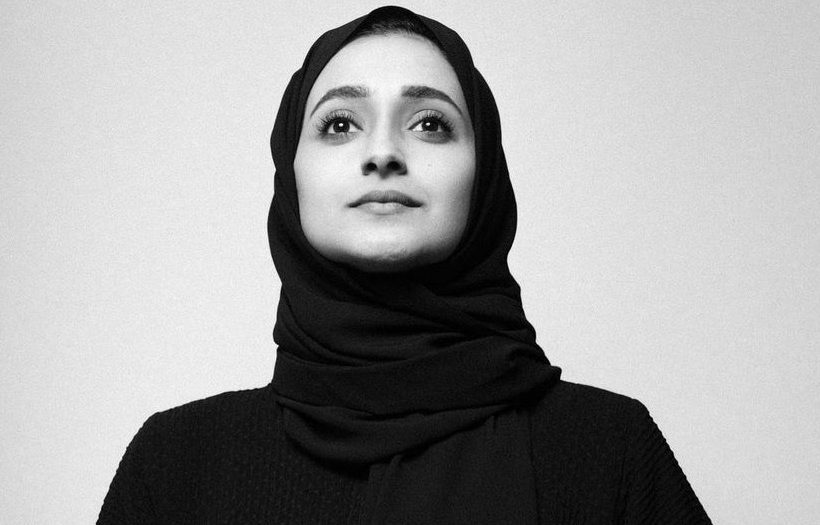The Emirati dissident previously sought political asylum with her husband Abdulrahman Bajubeir in Qatar in an attempt to flee a crackdown on activists by Abu Dhabi.
The body of prominent Emirati dissident Alaa Al-Siddiq, who passed away a week ago in a car crash, is reportedly heading from London to Doha where she will be laid to rest.
“Our daughter Alaa Al-Siddiq may God have mercy on her soul left from her exile in London this morning and is heading to her family in Qatar, her final resting place,” Emirati writer and media personality Ahmad Al Shaibah Al Nuaimi tweeted on Saturday.
غادرت صباح اليوم ابنتنا #آلاء_الصديق رحمها الله غربتها في أراضي #لندن متجهة إلى أسرتها في #قطر حيث مثواها الأخير.
سنخبركم بموعد الصلاة عليها و المكان بإذن الله.
إلى جنات الخلد يا ابنتي
تغمدك الله بواسع رحمته#آلاء_الصديق_في_ذمة_الله pic.twitter.com/wa8HBN8VKK— أحمد الشيبة النعيمي (@Ahmad_Alshaibah) June 26, 2021
The Emirati writer added that he will later provide the public with details of the time and place of the burial and prayers.
This comes amid reports that the UAE has refused to allow for Alaa to be buried in her home country.
A day after her death last week, US-based advocacy group Democracy for the Arab World Now [DAWN] urged Emirati authorities to immediately enable the return of her body to the UAE so that she can be buried in her homeland, while calling for the release of her father Muhammed Al-Siddiq, or at least for him to be allowed to attend his daughter’s funeral.
“The very least Emirati authorities could do is to repatriate Al-Siddiq’s body and allow her father to leave prison to attend a funeral and properly grieve her loss,” said Sarah Leah Whitson, Executive Director of DAWN.
Qatar asylum
Al-Siddiq sought political asylum with her husband Abdulrahman Bajubeir in Qatar in 2012, when Emirati authorities launched a widespread crackdown on political dissidents between 2011-2012.
She then followed her husband to London, where she lived in exile since 2019.
In a 2018 interview with Qatar TV, Qatar’s Deputy Prime Minister and Minister of Foreign Affairs Mohammed bin Abdulrahman Al-Thani said that a dispute had occurred between Qatar and the UAE in 2015 concerning a political dissident’s wife.
The UAE sent a special envoy to Amir Sheikh Tamim bin Hamad Al Thani and demanded that Qatar hand over the woman for arrest – a request that Qatar refused.
This caused a dispute between the Gulf nations in 2015, just two years ahead of the 2017 blockade.
Although the Qatari official fell short of mentioning her name, it was later clarified that the woman in question was indeed Al-Siddiq, according to editor-in-chief of the Qatar-based newspaper Al-Arab, Abdullah bin Hamad Al-Athba.
Skepticism over her death
Al Siddiq’s sudden death drew skepticism by the international community, given her vocal opposition to the UAE and its recent normalisation with the Israeli occupation; both of who’s oppressive policies Alaa opposed.
DAWN also called on UK authorities to investigate the car crash that led to her death.
“While we have no reason to believe that Al-Siddiq’s death was nothing but a tragic accident, we need UK authorities to reassure us that no foul play was involved, given the Emirati and Saudi government’s record of surveilling, targeting and harassing activists and their families abroad,” added Whitson.
Read also: Rights group urges immediate probe into death of Emirati dissident Alaa Al-Siddiq
According to DAWN, Thames Valley Police published an urgent appeal for witnesses to the crash, in which three others were also injured, including the driver of the second vehicle.
Al Siddiq was also the Executive Director of DAWN’s partner organisation ALQST, a leading UK-based advocacy organisation for human rights in the Gulf. She received her masters in Public Policy from the Hamad Bin Khalifa University in Qatar Foundation.
“Al-Siddiq was inspired, not defeated, by the injustice experienced by her father, Muhammed Al-Siddiq, to seek justice for all of the people of the Gulf region deprived of basic human rights,” said Whitson, who is also a board member of ALQST.
She has been defending the rights of prisoners of conscience in the UAE, including the plight of her father who is has been held in an Emirati jail cell since 2012 for his peaceful calls for political reform. His activism led to the stripping of his citizenship.
“Al-Siddiq’s commitment and perseverance are a model for all of us. We are confident the work of ALQST will continue; it is needed now more than ever,” Whitson added, speaking of the deceased activist.
Her death sparked an outpouring of condolences from major rights defenders online, including the wife of slain Saudi journalist Jamal Khashoggi who was murdered by Saudi agents in the kingdom’s Istanbul consulate in 2018.
Follow Doha News on Twitter, Instagram, Facebook and Youtube







